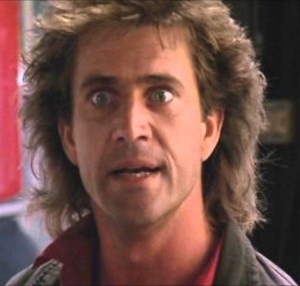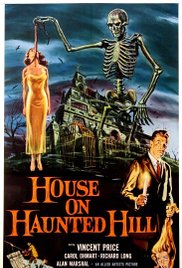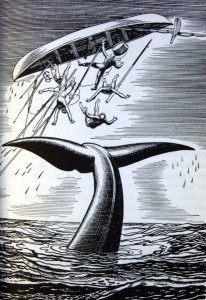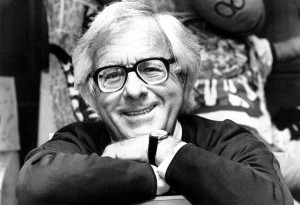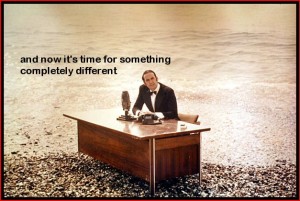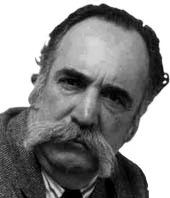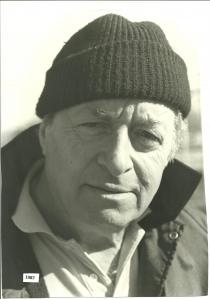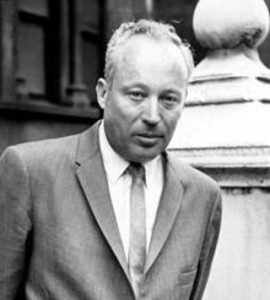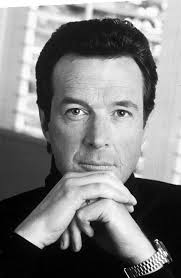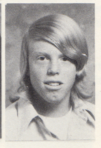by James Scott Bell
@jamesscottbell
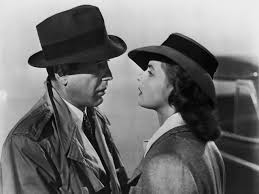
What is the most famous ending of all time?
I’ll cast my vote for Casablanca. It is certainly the most popular. The first time you see it you can’t help but be moved. Some people weep. Others feel an uplifted respect for things like duty and honor.
And then it hits us with the famous last line: Louis, I think this is the beginning of a beautiful friendship.
Why does this work so well?
Let’s start at the beginning. Rick Blaine is an American running a night club in French occupied Morocco during World War II. He sticks his neck out for nobody. He’s trying to forget being betrayed by the woman he loved, Ilsa Lund.
And then she and her husband, Victor Laszlo, turn up at the club.
You know the story.
If you don’t, shame on you. Go watch the movie before you write another word.
Intrigue follows, until at the end Rick is at the airport with Ilsa, who looks remarkably like Ingrid Bergman, and she’s ready to leave her husband and go away with him.
But then Rick stops and tells her no, this is wrong. If we go through with it we’ll regret it, maybe not now but soon and for the rest of our lives.
And yet: “We’ll always have Paris. Here’s looking at you, kid.”
Rick has sacrificed the thing he wants most in this world. He has done it for a higher good (no longer will he say, “I stick my neck out for nobody.”).
He’s also put his very life on the line, for he has killed the Nazi major in front of the French police captain, Louis.
But in a stunning reversal, Louis does not arrest Rick. Instead, moved by Rick’s moral courage, he himself sacrifices his position of power to go off and fight the Nazis with Rick.
What’s happened?
Rick, who has been living as an isolated dead man walking, has offered to sacrifice his life … and has been resurrected.
Hm, why am I thinking about that on this particular Sunday?
Because the central Christian message of sacrifice and resurrection is the shaping force of our civilization. Even if one does not celebrate Easter, or is not religious at all, it must be acknowledged that there is something in us that vitally responds to a sacrifice for the greater good.
Which is why Casablanca resonates.
And why sacrifice in fiction moves us.
It can happen in genre fiction, such as Dashiell Hammet’s classic, The Maltese Falcon. At the end Sam Spade has within his reach the woman he’s fallen for, Brigid O’Shaughnessy. He loves her even though he knows she’s a liar and manipulator. But he’s a sneaky PI who had an affair with his partner’s wife, so maybe they actually belong together!
But Spade gives it up, because there’s a principle involved:
“I don’t care who loves who I’m not going to play the sap for you. . . . When a man’s partner is killed he’s supposed to do something about it. It doesn’t make any difference what you thought of him. He was your partner and you’re supposed to do something about it.”
After Spade goes through his reasons, he says to Brigid:
“Now on the other side we’ve got what? All we’ve got is the fact that maybe you love me and maybe I love you.”
“You know,” she whispered, “whether or not you do.”
“I don’t. It’s easy enough to be nuts about you.” He looked hungrily from her hair to her feet and up to her eyes again. “But I don’t know what that amounts to. Does anybody ever?”
Finally, Brigid plays her big card.
She put her face up to his face. Her mouth was slightly open with lips a little thrust out. She whispered: “If you loved me you’d need nothing more on that side.”
Spade set the edges of his teeth together and said through them: “I won’t play the sap for you.”
She put her mouth to his, slowly, her arms around him, and came into his arms. She was in his arms when the door-bell rang.
Spade, left arm around Brigid O’Shaughnessy, opened the corridor-door. Lieutenant Dundy, Detective-sergeant Tom Polhaus, and two other detectives were there.
Spade said: “Hello, Tom. Get them?”
Polhaus said: “Got them.”
“Swell. Come in. Here’s another one for you.” Spade pressed the girl forward. “She killed Miles.”
So Spade lets the police cart Brigid off to her inevitable appointment with the noose. With this sacrifice, Spade “wins” because he has upheld the moral order of his particular universe.
Even before Christ, the resonance of sacrifice and resurrection was inside us––almost as if we’d been wired for it. Around 438 BC the Athenian playwright Euripides presented Alcestis. In this play a king named Admetus is due to kick the bucket. But he is given a gift by the gods––he does not have to die if he can find someone to take his place.
No one is anxious to step in for that particular service, except his wife, Queen Alcestis. She does this so her children will not be left fatherless and she a grieving widow. Plus, she knows he is a good king and the people need him.
Sacrifice!
Off she goes with Death, toward her eternal destiny.
Meanwhile, Heracles (the Greek name for Hercules, which is the Roman name for Steve Reeves), hears this sad tale and vows to battle Death and bring Alcestis back from the  dead.
dead.
Which he does. He returns to the palace with a veiled Alcestis. King Admetus doesn’t know her at first. But then he lefts her veil and there she is. Interestingly, she cannot speak for three days, and then is fully restored.
Sacrifice is powerful. Perhaps the reason is this: we know life is tough, and that to stand up for the good usually comes at a cost. Fictional characters who fight for what’s right are going to be wounded. Otherwise, the thing they’re standing up for isn’t all that important.
When they offer their lives, it is the ultimate sacrifice. If they survive, it is like a resurrection.
But even if they do not survive, there is still a resurrection. Their spirit will live on. Their sacrifice inspires others to change for the better and carry on the fight. Think of William Wallace in Braveheart. He can end his torture simply by confessing to treason. Instead he shouts, “Freedom!” just before the ax falls. His death inspires his followers, most notably Robert the Bruce, so they may all go on to fight like free men.
Or even the comedy Mister Roberts. The book, play and movie (starring Henry Fonda, Jack Lemmon and James Cagney) were huge successes, in large part because the ending hits us with a somber jolt that is followed by the rebirth of one Ensign Pulver.
In other words, the sacrificial ending works all over the place, in any type of fiction.
But even if you don’t end with a sacrifice, at least have the conflict of the novel cost the Lead something essential. He will then emerge as a different or stronger person at the end. That’s the essence of story in a nutshell.
Happy Easter. May this day bring you blessings, joy, creativity … and some very good words for your WIP!
 Anyway, I’m also reminded of a TV show years ago called The Millionaire. A guy would show up at some person’s door and hand them a check for a million dollars, taxes “already paid.” The rich man behind this scheme wanted to see what an ordinary person would do with sudden wealth.
Anyway, I’m also reminded of a TV show years ago called The Millionaire. A guy would show up at some person’s door and hand them a check for a million dollars, taxes “already paid.” The rich man behind this scheme wanted to see what an ordinary person would do with sudden wealth.

